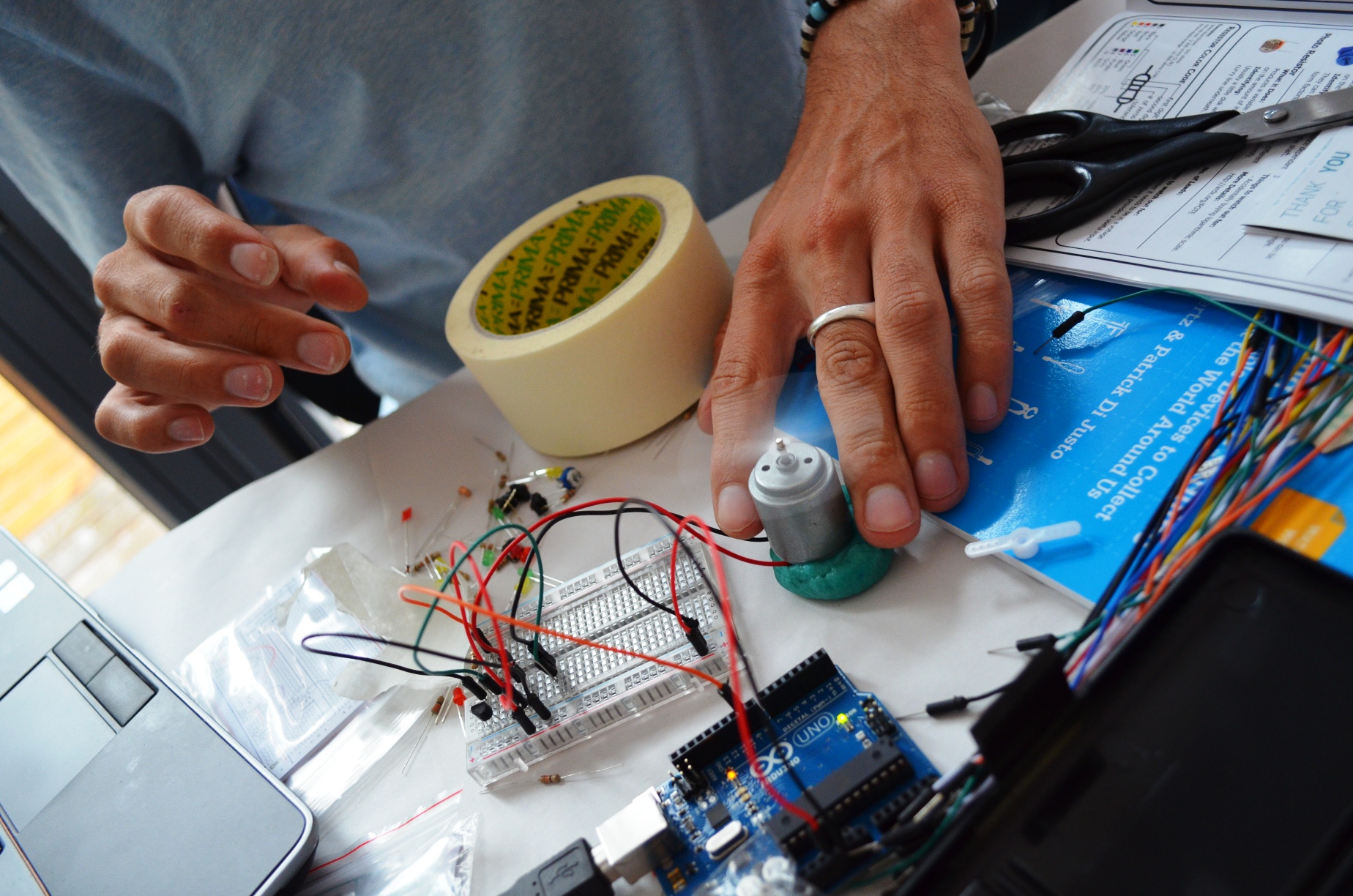The Mayville Community Centre opened its doors to visitors as part of the annual Open House London festival last weekend. Visitors had the opportunity to join tours led by Justin Bere and Nick Newman, to learn about the transformation of the centre from what was an uninsulated and inefficiently used Victorian building into what is now a fully certified, award-winning Passivhaus community centre with 90% energy savings.
Saturday saw over 50 people through the door, interested to find out about how the Passivhaus standard works and what can be achieved, with many visitors still braving the storm that raged on Sunday. The atmosphere was nice and friendly and the horizontal rain made everyone very happy to be inside a warm and comfortable Passivhaus with a nice cup of tea. Many of the people who came were architects exploring Passivhaus projects of their own.

Alongside the Open House visits, Cindy Regalado, a PhD student at UCL, organised an event called Touch|Play|Learn in the foyer to explore with the community how they can explore their local area and homes. Families and children came and were amazed by how the machines reacted to them, the most fun being when they got to use playdough with salt that conducted electricity! Many of the tools were Arduino-based, a DIY computer the size of a credit card that anyone can program and turn into pretty much anything they want – from a weather station to a quadcopter! We were all fascinated with the potential these little machines have with some of us twiddling the afternoon away at the event’s Arduino Sandbox. All you needed to begin creating wonderful things was a computer, an Arduino, a motor, some cables and a battery pack and by the end of the day we had such things as fans turning and lights blinking at desired intervals! This might not sound very impressive, but this is just the beginning.
Learn more about Arduino here.
See Markus Kayser's Solar Sinter project, using Arduino, here.